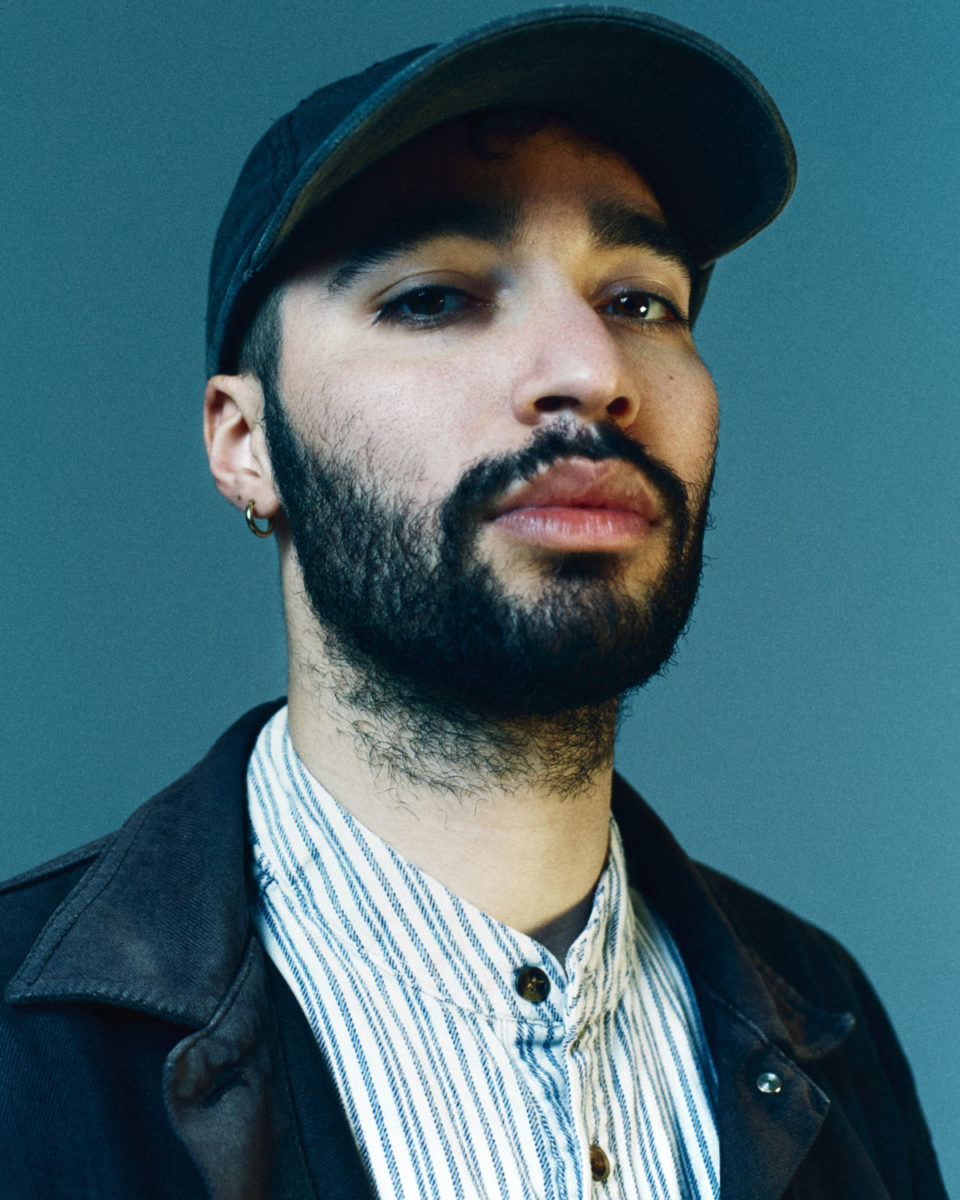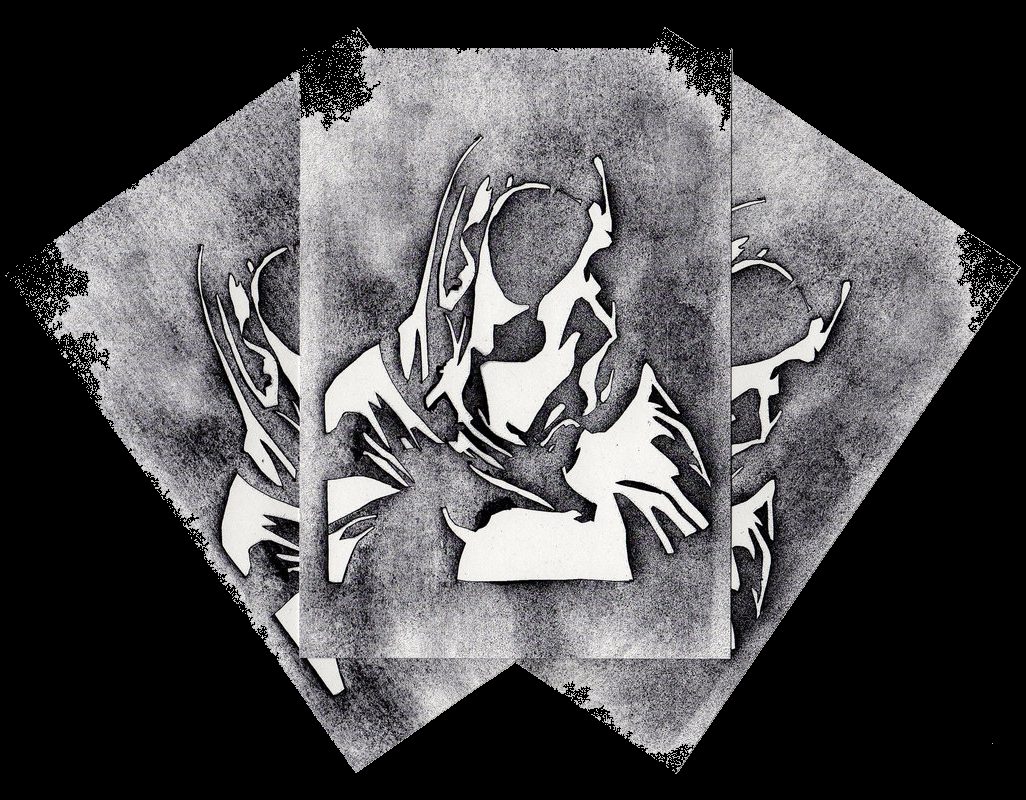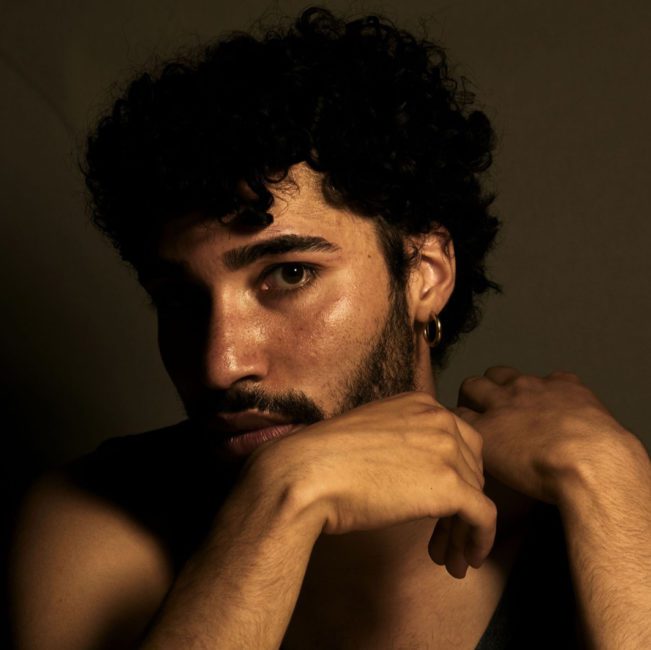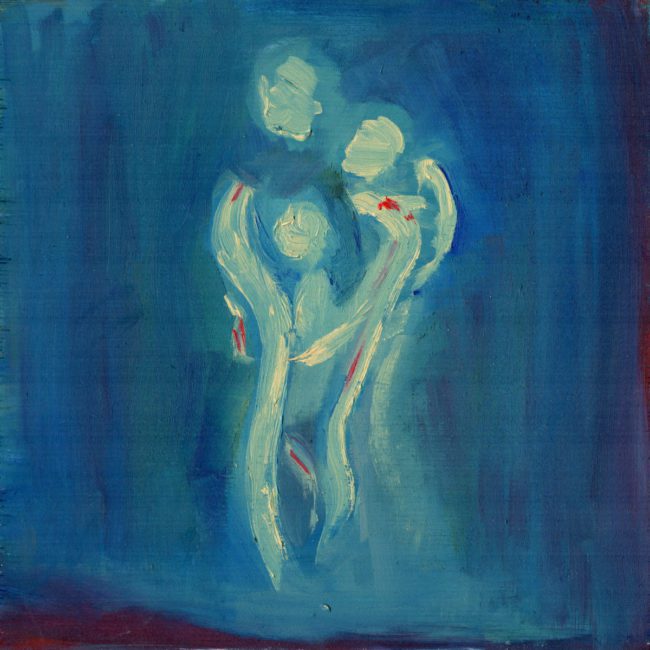For Waz-u, sound has always taken on a peculiar weight, resonating deep in the folds of memory and sensation, like an ever-shifting chamber where rhythm and texture collide. Cutting his teeth in South London as a session drummer, moving fluidly between the broken beat inflections of the Monzanto Sound collective and the raw experimental edges of Nexus_0. Over time, his approach has drifted between the electricity of collective improvisation and the quiet discipline of solitary craft.
Together with his brother Mali-I, they’ve forged Biodiversity Studios – a recording studio and label providing a space in London where dub techno experiments meet stripped-back reggae revisions and unexpected UK Garage tangents.
On his latest album ‘Preludes: Dusk Psalms‘, Waz-u strips away much of the pulse-driven momentum, allowing the frequencies to float in far more vaporous territory. The album unfolds slowly, carried by glowing synth tones coaxed from a Studio Electronics Boomstar 4075 – a machine he nearly parted ways with before it revealed unexpected dimensions. Hazy melodic fragments drift through wide-open drones and skeletal neo-classical motifs, occasionally brushing up against the ambient nostalgia of Boards of Canada, while remaining firmly grounded in his Afro-Caribbean dub lineage.
Reflecting on the making of the album, Waz-u recalls childhood car rides soundtracked by King Tubby, the grind of self-releasing music on his own terms, and the strange satisfaction that comes with building work unconcerned with dancefloor demands. His thoughts range from the lure of ritual space to an unlikely fascination with a contemporary Scottish bagpipe record. What emerges is a portrait of a boundary-pushing producer following his own unhurried path, crafting soundscapes that feels spacious and quietly devotional.
Interview by Mathias Chaboteaux

"I enjoy music that is static and barely shifting but I want to make music that has momentum to it, even if it is subtle at times. Ideally you can make music that feels static but actually has development and progression behind that."
Tracing back to the beginning, what gravitated you towards sound? Was there a particular moment that caught your attention?
I have vivid memories of listening to the iconic ‘King Tubby meets Rockers Uptown’ when on long car journeys to Wales with my dad and falling in love with the atmosphere and texture created by the dub effects. I believe that sonics is one of the key components of music (along with harmony, melody and rhythm) that can tell a story and create emotional spaces.
You often collaborate with your brother Mali-I – can you tell us more about the musical rapport between you both, and how that connection shapes your output today?
It’s great to work closely with my brother and we co-manage Biodiversity Studios. It’s fun working on lots of different projects together and building something from the ground up. He’s more developed on the mixing/engineering side of things and I focus more on the playing but we both share a love of production and often find ourselves making dub techno on Fridays. Recently we have done a bunch of 70s style reggae remixes, notably one for Private Joy featuring Fox, which is out on Rhythm Section International soon.
It’s been six years since your first solo outing. Looking back, how did stepping away from bands and into your own space shift the way you produce?
Yes, its been a while! I actually still do lots of work with bands and as a session drummer: Monzanto Sound has an album out this summer and Nexus_0 will be releasing more new music over the next couple of months, after the debut EP last year. Having my own project has allowed me to have a more professional approach to other projects as I recognise that there is a space for my own self expression elsewhere and I can bring what the music needs rather than impose my own ego on the music.
Your newer material leans into stretched-out, more atmospheric terrain. Was this move toward a more ambient pace intentional or did it surface from somewhere more intuitive?
I think that I reflected on the ‘Prayer for Dawn’ record and, even though I love writing electronic beats, I was feeling like I wanted to produce a more focused record; a lot of the best moments where the ambient sections. I also recognise that I’m not (and probably won’t ever be) a DJ and that focusing my energy on making club music is not great for my career. I intend to release techno tracks as EPs or singles but I don’t think that that kind of music lends itself well to albums or LPs which is what I want to do more of.
There’s a fascinating motif that keeps recurring in your work: rising, falling, tension and release. What keeps drawing you back to that space between ascent and collapse?
I love songwriting and the development that comes from pieces with progression. Of course, this record is predominantly instrumental but I have been very influenced by the concept and format of ‘verses’ and ‘choruses’ within the music that I make. I enjoy some music that is static and barely shifting but I want to make music that has momentum to it, even if it is subtle at times. Ideally you can make music that feels static but actually has development and progression behind that.
Coming from a blend of British and Afro-Caribbean heritage, do you feel your identity informs the choices you make musically? Whether in rhythm, tone or the stories you gravitate toward?
Yes, I definitely find it a driving force for inspiration and grew up listening and learning music from both traditions. More than anything else, I feel informed as to having an open mind when listening to music and as a result have lots of different musical experiences to draw from for inspiration.
I definitely lean more towards the Afro-Caribbean styles when approaching groove and rhythmic ideas and the classical/European styles when thinking about harmonic progressions and texture. Obviously, as this record lacks drums, there is more of a European than Afro-Caribbean flavour to it. However, the use of polymeters and dub effects are definitely more rooted in Afro-Caribbean styles.
Sacred themes seem to echo across your discography – with countless references to ritual. How does the spiritual feed into your process and is there a space (physical or internal) you return to for grounding?
Yes, I’m very interested in sacred music, and even though I am not a Christian, I take lots of inspiration from music rooted in Christian culture. I love the idea of spaces devoted for music and congregation and that they have their own intrinsic sounds.
Churches are renowned for their lush reverbs and as a result many plugins model their reverbs on famous church spaces. I am also passionate about making music that appeals to anyone and is ultimately rooted in simplicity; which is at the heart of sacred music traditions.
On Bandcamp, you’re selling a postcard set featuring Maria – her face cloaked in shadow, poised between icon and enigma. What’s the story behind this visual and what drew you to that format?
I suppose I liked the image, which was made by scanning in a spray paint stencil that I cut. I liked the idea of an ethereal maternal spirit being the central visual piece of that record: Dawn represents the mother of life and it made sense to me for an album called Prayer for Dawn. I took an image which is widely recognised and decided to re-contextualise it for a psychedelic effect.

"I liked the idea of an ethereal maternal spirit being the central visual piece of that record: Dawn represents the mother of life and it made sense to me for an album called Prayer for Dawn."
You paint as well as produce music – how do these two creative outputs speak to each other? Are there overlaps, or do they live in different corners of your mind?
It’s funny as I don’t consider myself a painter but do enjoy it as a way to relax in my spare time (of which there is almost none!). As a result I’m very relaxed about the quality of the visual work I produce, whereas I have a much more meticulous and refined approach to music making, sometimes to its detriment.
With your label and the work around Biodiversity Studios, you’ve helped cultivate a creative hub. What have been the most meaningful milestones so far and what keeps the engine running when things get hard?
I think building a studio that was flexible enough to make lots of different styles was a significant milestone: initially it was only set up to make electronic music in. However, now we have the facility to record live drums and piano and even do sessions with multiple live musicians in the same room.
Fortunately there are lots of creative projects always happening there, but if it ever gets hard I tend to focus on enjoying myself in the space and stop thinking about creative output or kinds of things that the music industry may or may not want from you.
Let’s talk gear. Which instruments or tools did you lean on most while making this release and what made them feel essential?
Probably the most used piece of kit for this record was the Studio Electronics Boomstar 4075 synthesizer. Just before starting to write the record, I was thinking about selling it as I wasn’t using it much in the music I was making, but the rich clean tone was actually perfect for the slow arpeggiated lines that frequent ‘Preludes: Dusk Psalms’.
I also think that it has one of the best sync sounds of any synth I have messed around with and creates a solid foundation for any melodic track. Making simple music is great fun, but you have to make sure that each component sounds incredible or the track won’t stand up sonically: the Boomstar really did this justice for me.
Self-releasing is often seen as liberating, but it’s also a heavy lift. What have been the less glamorous parts of the journey, and what have they taught you?
Self-releasing is really hard and to be completely honest not very enjoyable a lot of the time. It’s a huge amount of work and one feels incredibly isolated in the process. However, I have learnt that most smaller record labels don’t actually do that much for artists (apart from taking a large amount of their money!) and it has been nice to have creative control over the whole process. The fact that ‘Preludes: Dusk Psalms’ went from the initial writing to actual release in less than a year is an example of this: most labels would have waited at least a year or more before actually putting it out once they received the masters.
If you had to spotlight five South London artists who are pushing boundaries right now – across any discipline – who comes to mind, and what are they doing that feels vital?
I’m not sure that I can answer this question. Mainly because the music I listen to is either very old or, if it is contemporary music, I listen to artists not from London. The artist I’m most excited about at the moment is Brighde Chaimbeul, a pipes player from Scotland who is doing something really transcendental right now. She has taken traditional folk music and given it a feeling that is almost electronic in her playing style; I would recommend her record ‘Carry Them With Us’. I cannot wait to see her perform on her tour in London this autumn.
You’ve moved fluidly between genres – whether drumming in Monzanto, exploring dub-heavy terrain solo or diving into ambient-infused neo-classical and experimental zones with Nexus_0. Where do you feel your compass is pointing next?
I’m working on lots of different things at the moment, but have a songwriting duo called Memory Phase and we are putting out a few singles over the course of this year which I’m really excited about. I’m also trying to do some more writing with Lilyg, who sang on ‘Vermillion’ as I think her voice works really well with my sound.
Apart from that, I was recently in the studio with the Monzanto Sound team and have started writing a record inspired by Tony Allen’s later solo work: Afrobeat, groove orientated with experimental psychedelic effects.
TRACKLIST
1. The Way Down: C Minor
2. Light Unseen: A Major
3. Silver Wing: A Major
4. Transcendence: A-Flat Major
5. The Word: C Major
6. Fallen Grace: C-Sharp Minor
7. Colour Fades: E Major
8. Parting Gift: B Minor
9. Equanimity: B Major
10. Vermillion: G Major (Album Version)
11. Lifted Hands: E Minor
12. Torn Veil: G Minor 01:47
13. Lament: B Minor (Album Version)
14. Moon Shadow: G Major
15. Great Amen: B Major
16. Lament: B minor (feat. Tom Norrington)
17. Vermillion: G Major (feat. Lilyg)

